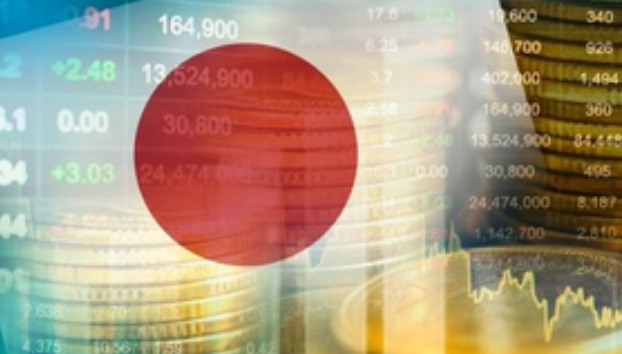Business
Japan loses its position as the world's third-largest economy to Germany

New Delhi, Feb 15
Japan has slipped to the world's fourth-largest economy as it fell behind the size of Germany's in 2023, says Deepak Jasani, Head of Retail Research, HDFC Securities.
Japan's nominal GDP totalled $4.2 trillion last year, or about 591 trillion yen. Germany's, announced last month, was $4.4 trillion, or $4.5 trillion, depending on the currency conversion, he added.
For the latest October-December quarter, the Japanese economy shrank at an annual rate of 0.4 per cent, and minus 0.1 per cent from the previous quarter, according to Cabinet Office data on real GDP. For the year, real GDP grew 1.9 per cent from the previous year, he said.
This follows a 3.3 per cent contraction in the third quarter. Two consecutive quarters of contraction are widely considered a technical recession, he added.
Japan has unexpectedly fallen into a recession after its economy shrank for two quarters in a row, BBC reported.
The country's gross domestic product (GDP) contracted by a worse-than-expected 0.4% in the last three months of 2023, compared to a year earlier.
It came after the economy shrank by 3.3 per cent in the previous quarter.
The figures from Japan's Cabinet Office also indicate that the country may have also lost its position as the world's third-largest economy to Germany, BBC reported.
Economists had expected the new data to show that Japan's GDP grew by more than 1% in the fourth quarter of last year.
In October, the International Monetary Fund (IMF) forecast that Germany was likely to overtake Japan as the world's third-largest economy when measured in US dollars, BBC reported.
The IMF will only declare a change in its rankings once both countries have published the final versions of their economic growth figures. It began publishing data comparing economies in 1980.
Economist Neil Newman told the BBC that the latest figures show that Japan's economy was worth about $4.2tn (£3.3tn) in 2023, while Germany's was $4.4tn.
This was due to the weakness of the Japanese currency against the dollar and that if the yen recovers, the country could regain the number three spot, Newman added, BBC reported.
At a press conference in Tokyo this month, the IMF's deputy head, Gita Gopinath, also said an important reason for Japan potentially slipping in the rankings was the yen falling by about 9 per cent against the US dollar last year.
However, the weakness of the yen has helped to boost the share prices of some of Japan's biggest companies as it makes the country's exports, such as cars, cheaper in overseas markets.
This week, Tokyo's main stock index, the Nikkei 225, crossed the 38,000 mark for the first time since 1990, when a collapse in property prices triggered an economic crisis. The Nikkei 225's record high of 38,915.87 was set on 29 December 1989, BBC reported.
#

2 hours ago
Ayan Mukerji says 'Love you & Miss you' as he remembers dad Deb Mukherjee on his birth anniversary

2 hours ago
Urmila Matondkar introduces her 'bestest winter essential'

2 hours ago
Tharoor cites Trump-Mamdani interaction to underline need for political cooperation

2 hours ago
ISI steps up effort to build white-collared modules by targeting Indian students abroad

2 hours ago
Prez Murmu participates in Sri Sathya Sai Baba’s birth centenary celebrations in Andhra

2 hours ago
Ready to meet PM Modi to explain Coimbatore, Madurai metro projects: CM Stalin

2 hours ago
No need to do politics on Mandir–Masjid: Former Babri mosque litigant on Trinamool MLA’s remark

2 hours ago
Navy Day 2025 to feature grand operational display of maritime power on Dec 3

2 hours ago
Delhi: AGS arrests accused wanted in attempt-to-murder case in Timarpur

2 hours ago
Govt to ensure uniform safety and health standards for workers

2 hours ago
Four minors among 6 arrested over gang-rape of teenage girl in Bengal’s East Burdwan

2 hours ago
Kerala: Woman's body found in sack; accused confesses to murder

2 hours ago
Pakistan-linked arms smuggling racket busted in Delhi; four arrested with foreign weapons






















